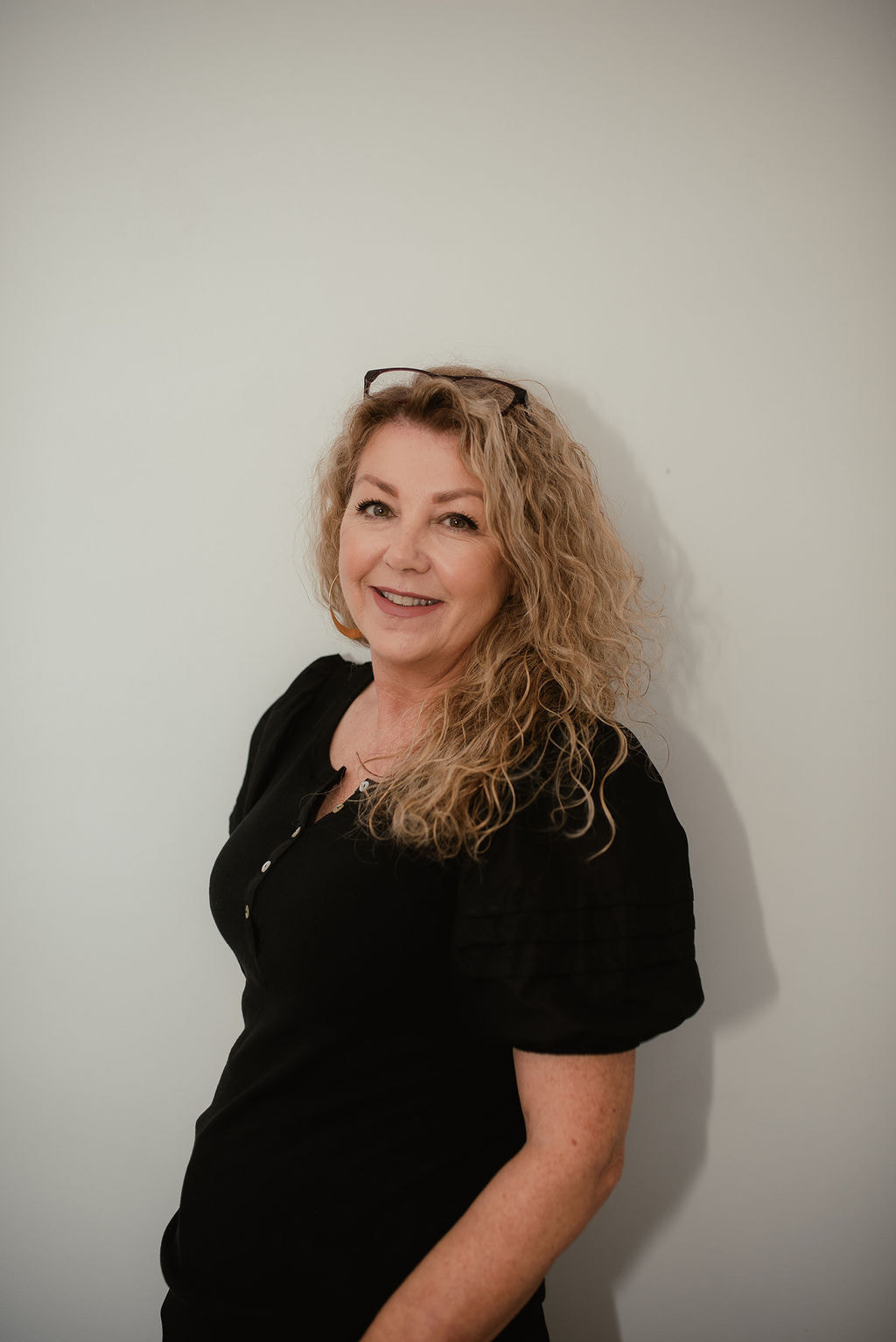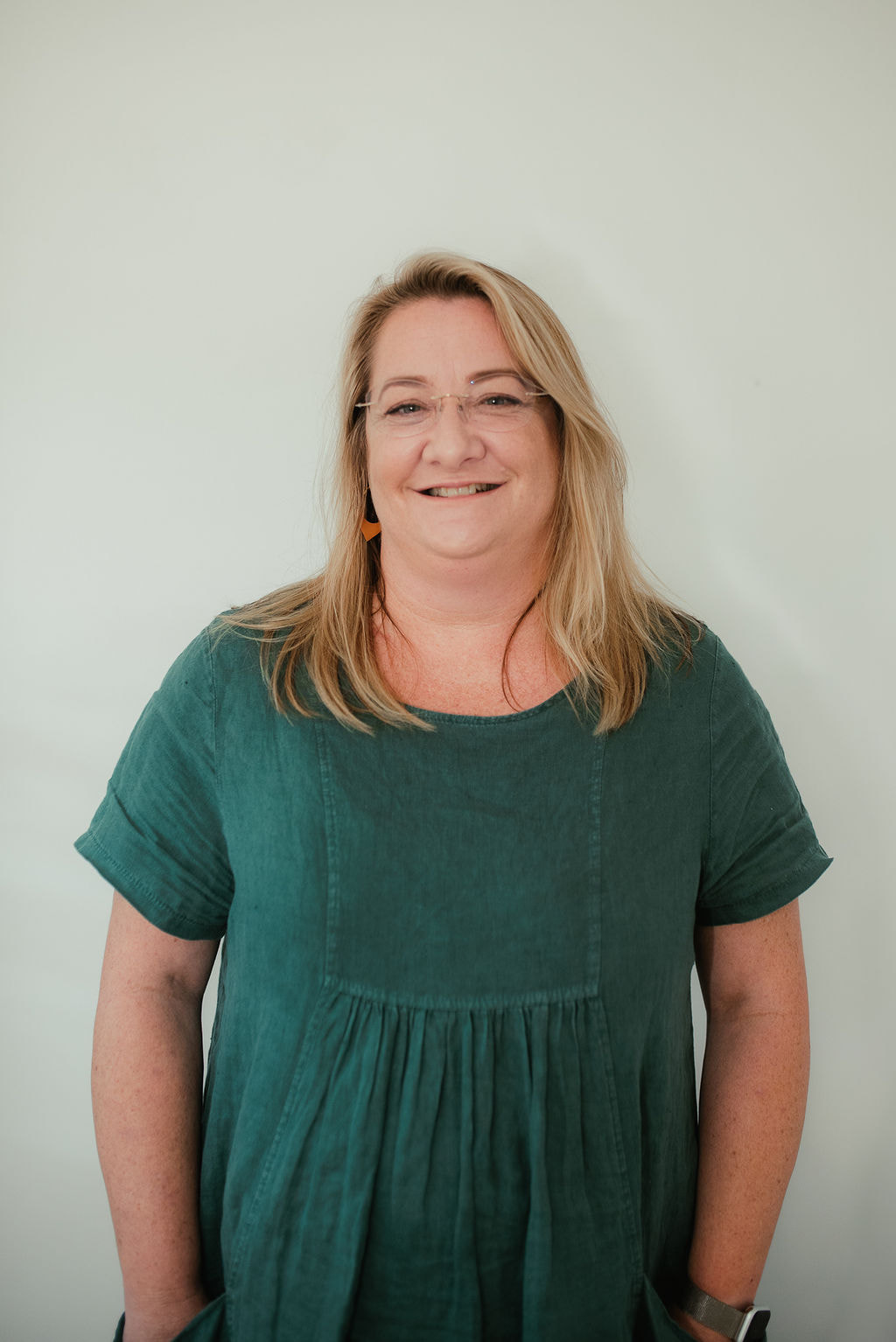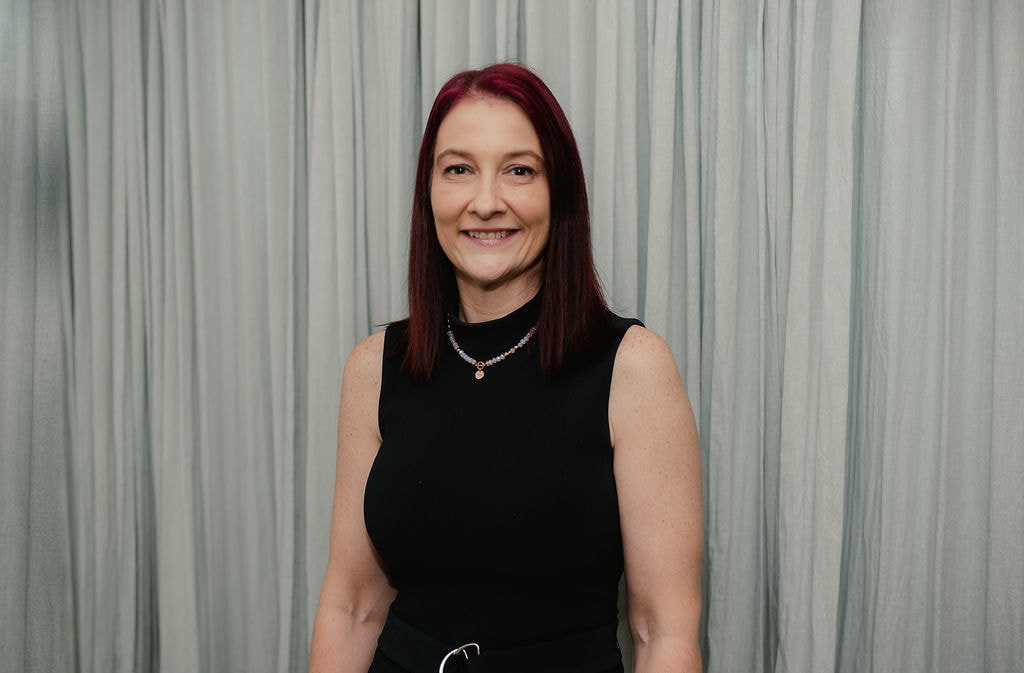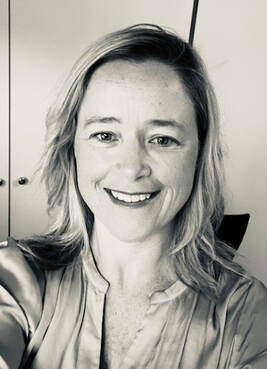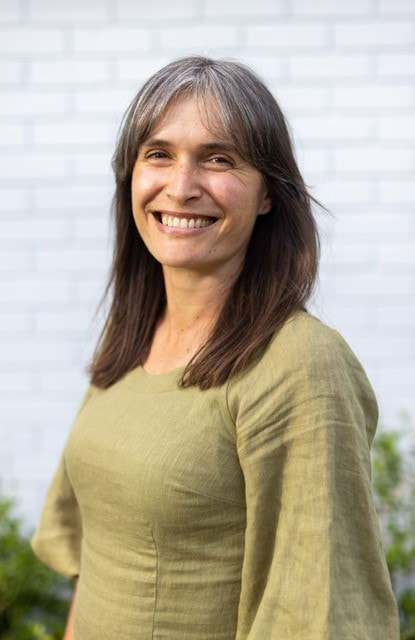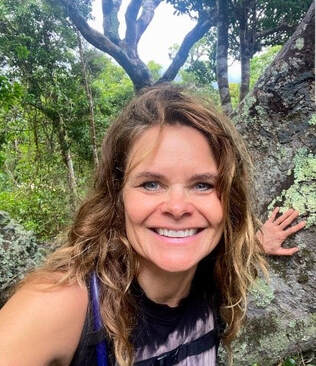What does a Psychologist do?
Psychology is the science of behavior and mind. Psychology includes the study of conscious and unconscious phenomena, as well as feeling and thought. It is an academic discipline of immense scope. Psychologists seek an understanding of the emergent properties of brains, and all the variety of phenomena linked to those emergent properties, joining this way the broader neuroscientific group of researchers. As a social science it aims to understand individuals and groups by establishing general principles and researching specific cases.
In other words, we help build resilience for great mental health.
Sara Clignett
|
Sara Clignett is a psychologist with over 20 years of experience. Her focus over the last 10 years has been on working with clients who have survived trauma, in particular clients who have experienced sexual abuse.
Sara works with her clients to tailor their treatment plans to fit their individual needs. She utilises interventions from a variety of evidence-based therapies including cognitive behavioural therapy, schema therapy, EMDR therapy, resource therapy, mindfulness, and clinical hypnotherapy. Sara sees clients 16+ with a wide range of issues under the BAMH and privately. Phone: (02) 4715 1100
|
Emma Diamond
|
Emma is a Registered Psychologist with experience supporting clients across the lifespan with a variety of presentations. She is passionate about empowering her clients to make positive changes in their life by providing a supportive and collaborative approach to wellbeing. She has a clinical interest the way adverse life events play out as present-day psychological distress. Emma’s treatment plans utilise a variety of evidence-based approaches tailored to suit each individual presentation. Emma is a member of the Australian Psychological Society (APS) and the EMDR Association of Australia (EMRAA).
Phone: (02) 4715 1100
|
Heidi Emery
|
Heidi completed her Master of Clinical Psychology (Distinction) and Bachelor of Psychology (Honours) at The University of Newcastle. Heidi is an endorsed Clinical Registrar and is registered with the Australian Health Practitioner Agency (APHRA).
Prior to gaining her Master of Clinical Psychology, Heidi spent most of her professional life working in the community service sector devoting many years to helping people in the community find solutions to real-life problems to improve wellbeing and quality of life. Heidi is a motivated and compassionate psychologist, a strong advocate for families, and enjoys the challenge of empowering clients to improve their overall wellbeing. She has a range of experience working with families, children, and adolescents. Heidi’s area of interest is working with teenagers both neurotypical and neurodiverse and is trained in assessments for Autism Spectrum Disorder (ASD), Attention Deficit Hyperactivity Disorder (ADHD) and Learning Disorders. Heidi works with a variety of presentations including ASD, ADHD, Bipolar Disorder, Eating disorders, behaviours difficulties, anxiety, depression, trauma, Tourette Syndrome, and personality disorders. Heidi utilizes a strengths-based, holistic approach in combination with a variety of evidence-based interventions to address the needs of her clients including, Cognitive Behaviour Therapy (CBT), Dialectical Behaviour Therapy (DBT) for adults and adolescents, Schema Therapy, Positive Psychology, Family Based Therapy, Parenting Programs and Mindfulness-based Interventions. Heidi’s experience in research at the University of Newcastle has provided her with an extensive understanding of the implications of research and the complexities involved in conducting evidence-based research. As part of her research, Heidi developed, and pilot tested an e-Health program for parents of children with special healthcare needs to support the mental health needs of parents and families. Phone: (02) 4715 1100 Email: [email protected] |
Bree Tebbutt
|
Books currently closed to new clients
Bree has spent much of her professional life working with children, adolescents and adults; working in private practice, community settings, in-patient units (public and private), occupational rehabilitation, early childhood settings, and tutoring and lecturing in psychology at Macquarie University and the University of Newcastle. She has been teaching at university level focused on the areas of pre-professional counselling skills and ethical conduct, in addition to preparing final year students for the workplace. Bree has conducted and published research into childhood reading difficulties and child mental health, and the development of a health tracking mobile phone application in conjunction with colleagues at the University of Newcastle, University of NSW and Macquarie University. Bree has a Bachelor of Teaching (Early Childhood), Bachelor of Science Psychology (Hons) and a Masters in Clinical Psychology (with Distinction). She is registered with AHPRA and endorsed as a Clinical Psychologist, and is a member of the Australian Psychological Society (APS). Bree enjoys the challenge of empowering clients to improve their overall wellbeing. She has a range of experience working with children and adolescents presenting with Anxiety disorders (including; generalised Anxiety, social Anxiety, separation Anxiety, Panic Disorder), Depression, trauma, suicidal ideation, self-harming behaviours, and Autism Spectrum Disorder (ASD). She also has experience working with adults presenting with Anxiety, Depression, and trauma history. Bree’s treatment methods stem from a combination of evidence based psychological interventions, including but not limited to Cognitive behavioural therapy (CBT), Acceptance and Commitment Therapy (ACT), Prolonged Exposure Therapy, EMDR, Mindfulness, and Dialectical Behaviour Therapy (DBT). Phone: (02) 4715 1100
|
Sarah Williams
|
Sarah has experience spanning 35 years in the therapeutic fields, mindfulness practices and personal growth. She worked with Lifeline for 9 years as a counsellor and training facilitator. She has postgraduate training in clinical Gestalt Psychotherapy and brings a holistic focus to how trauma and life events impact mind and body. A Bit About Gestalt Therapy Aristotle, the Ancient Greek philosopher famously said ‘the whole is greater than the sum of its parts’ and this is central to understanding human perception in terms of the Gestalt psychology school of thought. Gestalt Therapy was founded by Fritz and Laura Perls in the early 1950’s integrating the approaches of Psychoanalysis, Zen Buddhism, Psychodrama, Holism, Phenomenology and Field Theory. These days Gestalt Therapy is influenced by the era of neuroscience, somatic experiencing, and the intersubjective arts. It is a therapy based on a 2 person psychological model with an awareness and an interest in the relationship between client and therapist. ‘Gestalt is above all about the whole – smells, tastes, intuitions, the surrounding environment, the historical context, the planetary hologram. And all of these co-exist like an excellent poem, wherein the artistry is never fully discovered, yet all the symbols and words, the cadences and shapes, interweave in a tapestry vibrating with life and tragedy and humour’ (Clarkson 1989). Clarkson notes the ‘impossibility of doing justice to the fullness, the vibrancy, the immediacy’ of the therapeutic engagement with client and therapist, and the 'rich, full-bodied intelligence of Gestalt practice’ whilst acknowledging the profound limitations of trying to capture that in words, ‘The Gestalt that can be described is not Gestalt’. What you can expect? The sessions generally focus more on process rather than content. The emphasis is on what is being done, thought and felt in the ‘present moment’ by both client and therapist, rather than on what was, might be, could or should have been. As you reflect on what brought you to therapy, the aim is that the context, dialogue and dynamic between therapist and client moves the awareness of the client into greater wholeness. Phone: (02) 4715 1100 Email: [email protected] |
Melanie Cooke
|
Melanie is an experienced clinical psychologist offering tailored therapy interventions which are grounded in her values of authenticity, collaboration, curiosity, and respect. Melanie has a Master of Clinical Psychology (2012) and has further training in gestalt therapy, acceptance and commitment therapy, mindfulness, cognitive behavioural therapy, and motivational interviewing. She has practiced therapy with young people and adults in specialist mental health and community settings since 2010.
Melanie works with individuals on a range of issues but has a particular interest in supporting:
Phone: (02) 4715 1100 Email: [email protected] |
Sarah Wills

|
Sarah is a mum of 4 and has a range of experience working with women and adolescents through running her own Women's Wellness Centre- with a focus on mindfulness techniques. Combined with 15 years of corporate leadership experience, Sarah is looking forward to applying her career history and her learnings in psychology to help empower clients to improve their overall wellbeing through a holistic and balanced approach to Wellness.
Sarah has a Bachelor of Psychology (Honours) and is a registered psychologist through APHRA and a current member of the APS. She runs all of her sessions via Telehealth so if you are not local, please feel free to reach out to enquire about booking in. Phone: (02) 4715 1100 Email: [email protected] |
Lou Rubie
|
Lou is a trauma-aware counsellor who uses a blend of somatic therapy and person-centred counselling.
Lou has a Bachelor of Science (Honours) majoring in Psychology, a Masters in Counselling and extensive training in yoga and meditation techniques for trauma, anxiety, stress, and depression. Lou has several years’ experience working with frontline professionals navigating the symptoms of PTSD. Whether you are experiencing stress, anxiety, depression, trauma, PTSD, grief or a tricky change in life, Lou would love to help you navigate your way through. A typical session will last 75 minutes, and you can expect to find a nurturing safe place where you work together using counselling, mindfulness and somatic techniques tailored to your unique needs. What is Somatic therapy? Somatic therapy is a type of therapy that is centred around the connection between the mind and body. The theory of somatic therapy is based on the idea that the things that happen in a person’s life, including negative experiences, are not only stored in the brain but in the body as well. The main goal of somatic therapy is to help a person increase awareness of the physical sensations that come from their mental health conditions and use this awareness to release tension, stress, and trauma to find healing. Each somatic therapy session looks different based on the individual, a session may include techniques like breathing exercises, postures, gestures, and other forms of movement to help release these feelings. Lou has a passion for helping people find balance, peace, and resilience in their life and offers a non-judgemental, inclusive environment that values and honours diversity. She also has experience with creating an affirming environment for Queer and Neurodiverse individuals. Phone: (02) 4715 1100 Email: [email protected] |
The Wellnest Collective Pty Ltd ABN: 15632686885
All registered Psychologists/Practitioners at The Wellnest Collective Pty Ltd (TWC) are independent contractors who engage TWC to provide administrative support and consulting room facilities to conduct their individual businesses. Registered practitioners contracted to TWC are responsible for their clients clinical treatment and care, having autonomy over their individual business. TWC is not responsible for the work of individual practitioners.
All registered Psychologists/Practitioners at The Wellnest Collective Pty Ltd (TWC) are independent contractors who engage TWC to provide administrative support and consulting room facilities to conduct their individual businesses. Registered practitioners contracted to TWC are responsible for their clients clinical treatment and care, having autonomy over their individual business. TWC is not responsible for the work of individual practitioners.

